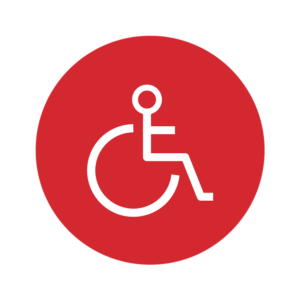
Benefits forWinchester Public Schools (VA)
Congratulations on your new employment!
Your employment means more than just a paycheck. Your employer also provides eligible employees with a valuable benefits package. Below you will find information about how to enroll in these benefits as a new employee.
Colonial Life Insurance Products - Please call PGB’s Employee Services within 30 days of your date of hire and a PGB Benefits Representative will help you enroll in benefits. The Employee Services number is located at the bottom of this microsite. You also have the option to self-enroll, if you choose, within 30 days of your date of hire. Please see the enrollment instructions on this site.
All Other Benefits - Please contact your Benefits Department within 30 days of your date of hire.
Be sure to also review your group’s custom benefits microsite, that allows for easy, year-round access to benefit information, live chat support, benefit explainer videos, plan certificates and documents, and carrier contacts and forms.
Overview of Benefits
Pre-Tax Benefits
 Health Insurance: Anthem – The Local Choice**
Health Insurance: Anthem – The Local Choice**
 Dental Insurance: Delta Dental of VA – The Local Choice**
Dental Insurance: Delta Dental of VA – The Local Choice**
 Vision Insurance: Blue View Vision – The Local Choice**
Vision Insurance: Blue View Vision – The Local Choice**
 Health Savings Accounts: Ameriflex
Health Savings Accounts: Ameriflex
– Employee Maximum $4,150/year
– Family Maximum $8,300/year
HSA plans can only be established in conjunction with a qualified High-Deductible Health Plan (HDHP)
 Flexible Spending Accounts: Ameriflex
Flexible Spending Accounts: Ameriflex
– Medical Reimbursement Maximum: $3,200/year
– Dependent Care Reimbursement Maximum: $5,000/year
– Limited Purpose Reimbursement Maximum: $3,200/year
You will need to re-enroll in the Flexible Spending Accounts if you want them to continue next year.
IF YOU DO NOT RE-ENROLL, YOUR CONTRIBUTION WILL STOP EFFECTIVE JUNE 30, 2024.
 Cancer Benefits: Colonial Life
Cancer Benefits: Colonial Life
 Accident Benefits: Colonial Life
Accident Benefits: Colonial Life
 Medical Bridge Benefits: Colonial Life
Medical Bridge Benefits: Colonial Life
Post-Tax Benefits
 Disability Benefits: Colonial Life
Disability Benefits: Colonial Life
 Critical Illness Benefits: Colonial Life
Critical Illness Benefits: Colonial Life
 Life Insurance: Colonial Life
Life Insurance: Colonial Life
– Term Life Insurance
– Whole Life Insurance
![]() Long Term Care: CHUBB
Long Term Care: CHUBB
Additional Benefits
![]() Student Loan Assistance Program: GradFin
Student Loan Assistance Program: GradFin
**The Local Choice Benefits are included in this booklet for informational purposes only.
Enrollment Period: May 1, 2024 – May 15, 2024
Effective Dates: July 1, 2024 – June 30, 2025
ELIGIBILITY:
– All full-time employees are eligible for benefits.
IMPORTANT NOTICES:
– When do my benefits start? The plan year for The Local Choice Benefits (Anthem Health, Delta Dental & Blue View Vision), Savings Accounts, Spending Accounts, Colonial Insurance Products, and CHUBB Long Term Care runs from July 1, 2024 through June 30, 2025.
– When do my deductions start? Deductions for The Local Choice Benefits (Anthem Health, Delta Dental & Blue View Vision) start June 2024 for eligible employees. Deductions for Savings Accounts, Spending Accounts, Colonial Insurance Products, and CHUBB Long Term Care start July 2024 for eligible employees.
– Why have my Cancer, Accident, or Medical Bridge benefits not started yet? The Colonial Cancer plan and the Health Screening Rider on the Colonial Accident and Colonial Medical Bridge plan have a 30-day waiting period for new enrollees. Coverage, therefore, will not begin until July 31, 2024.
– How do Flexible Spending Account (FSA) funds work, and do my FSA funds have to be used by a specific deadline? Flexible Spending Account expenses must be incurred during the plan year to be eligible for reimbursement. After the plan year ends, an employee has 90 days to submit claims for incurred qualified spending account expenses (or 30 days after employment termination date). If employment is terminated before the plan year ends, the spending account also ends. Failure to use all allotted funds in the FSA account will result in a “Use It or Lose It” scenario. Your plan includes a grace period which is an additional 2.5 months (running July 1, 2025, through September 15, 2025) during which you can incur eligible expenses that can be reimbursed. Therefore, you have from July 1, 2024 through September 15, 2025 to incur qualified expenses eligible for reimbursement. If you do not incur qualified expenses by September 15, 2025 and/or file by September 30, 2025 any contributions are forfeited under the “Use It or Lose It” rule.
– My spouse is enrolled in an Health Savings Account (HSA), am I eligible for an FSA? As a married couple, one spouse cannot be enrolled in a Medical Reimbursement FSA at the same time the other opens or contributes to an HSA.
– How do Dependent Care Account (DCA) funds work and when do they need to be used? Dependent Care Accounts are like FSA accounts and allow you to request reimbursement up to your current balance. However, you cannot receive more reimbursement than what has been deducted from your pay. It’s important to note that any remaining funds in your DCA account must be utilized before the deadline. Failure to use all allotted funds in the DCA account will result in a “Use It or Lose It” scenario.
– When will I get my card? If you will be receiving a new debit card, whether you are a new participant or to replace your expired card, please be aware that it may take up to 30 days following your plan effective date for your card to arrive. Your card will be delivered by mail in a plain white envelope. During this time you may use manual claim forms for eligible expenses. Please note that your debit card is good through the expiration date printed on the card.
– I want to sign my family up for benefits as well, what information will I need? If signing up for any coverage on your spouse and/or children, please have their dates of birth and social security numbers available when speaking with the Benefits Representative.
– What is the difference between pre and post-tax benefits? Pre-tax benefit contributions are taken from an employee’s paycheck before state and federal taxes are applied. Post-tax benefit contributions are paid after taxes are deducted. It’s important to note that some coverages may still be subject to taxes even if paid for through pre-tax deduction or employee contribution.
– Can I change my benefit elections outside of the enrollment period? Elections made during this enrollment period CANNOT BE CHANGED AFTER THE ENROLLMENT PERIOD unless there is a family status change, otherwise known as a qualifying life event (Mid-Year Events), as defined by the Internal Revenue Code. Examples of Mid-Year Events can be found here. Once a Mid-Year Event has occurred, an employee has 30 days to notify PGB’s VA Employee Services at 1-800-387-5955 to request a change in elections.
– I have a pre-existing condition. Will I still be covered? Some policies may include a pre-existing condition clause. Please read your policy carefully for full details.